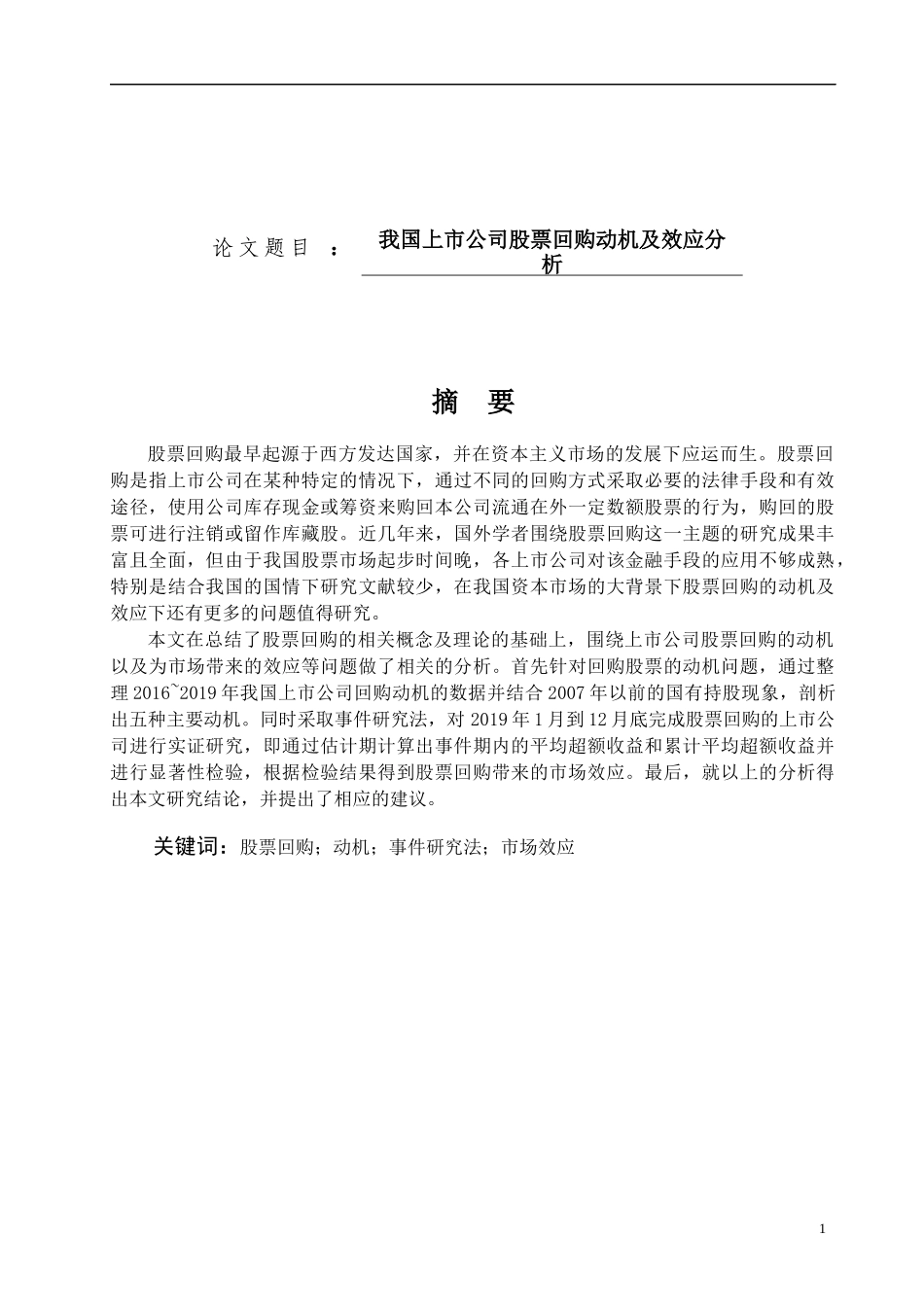1论 文 题 目:我国上市公司股票回购动机及效应分析摘 要股票回购最早起源于西方发达国家,并在资本主义市场的发展下应运而生。股票回购是指上市公司在某种特定的情况下,通过不同的回购方式采取必要的法律手段和有效途径,使用公司库存现金或筹资来购回本公司流通在外一定数额股票的行为,购回的股票可进行注销或留作库藏股。近几年来,国外学者围绕股票回购这一主题的研究成果丰富且全面,但由于我国股票市场起步时间晚,各上市公司对该金融手段的应用不够成熟,特别是结合我国的国情下研究文献较少,在我国资本市场的大背景下股票回购的动机及效应下还有更多的问题值得研究。本文在总结了股票回购的相关概念及理论的基础上,围绕上市公司股票回购的动机以及为市场带来的效应等问题做了相关的分析。首先针对回购股票的动机问题,通过整理 2016~2019 年我国上市公司回购动机的数据并结合 2007 年以前的国有持股现象,剖析出五种主要动机。同时采取事件研究法,对 2019 年 1 月到 12 月底完成股票回购的上市公司进行实证研究,即通过估计期计算出事件期内的平均超额收益和累计平均超额收益并进行显著性检验,根据检验结果得到股票回购带来的市场效应。最后,就以上的分析得出本文研究结论,并提出了相应的建议。关键词:股票回购;动机;事件研究法;市场效应2AbstractStock repurchases originated in western developed countries, and came into being with the development of capitalist market. Stock buyback refers to the behavior that a listed company adopts necessary legal means and effective ways through different buyback methods to buy back a certain amount of the company's outstanding shares by using the company's cash on hand or financing. The purchased shares can be cancelled or reserved as treasury shares. In recent years, foreign scholars have achieved rich and comprehensive research results on the subject of stock repurchase. However, due to the late start of China's stock market, the application of this financial means by listed companies is not mature enough, especially in the context of China's national conditions, there ar...


